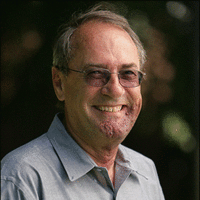The document was issued by academy or academy organization.
Submitted by Anonymous on December 15th, 2010
Submitted by Wei Dong on December 13th, 2010
File
SCS Workshop Agenda
 Submitted by Janos Sztipanovits on October 12th, 2010
Submitted by Janos Sztipanovits on October 12th, 2010
Submitted by Anonymous on October 12th, 2010
File
What kinds of initiatives are needed to create the next generation of CPS scientists and engineers?
 Submitted by Paulo Tabuada on July 1st, 2010
Submitted by Paulo Tabuada on July 1st, 2010
 Submitted by Insup Lee on July 1st, 2010
Submitted by Insup Lee on July 1st, 2010
 Submitted by Edward Lee on July 1st, 2010
Submitted by Edward Lee on July 1st, 2010
Submitted by Anonymous on May 27th, 2010
 Submitted by Karl-Erik Årzén on May 27th, 2010
Submitted by Karl-Erik Årzén on May 27th, 2010
Submitted by Anonymous on May 27th, 2010